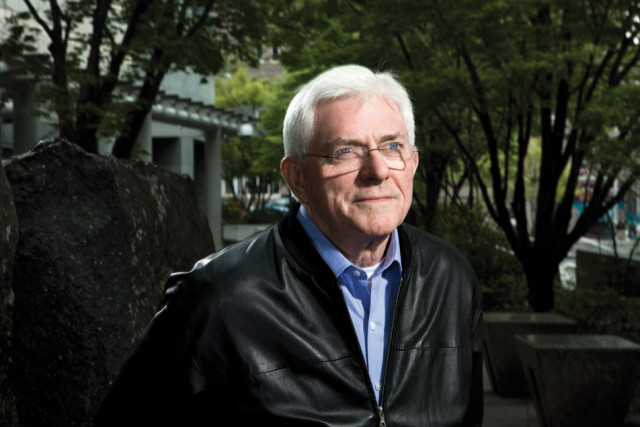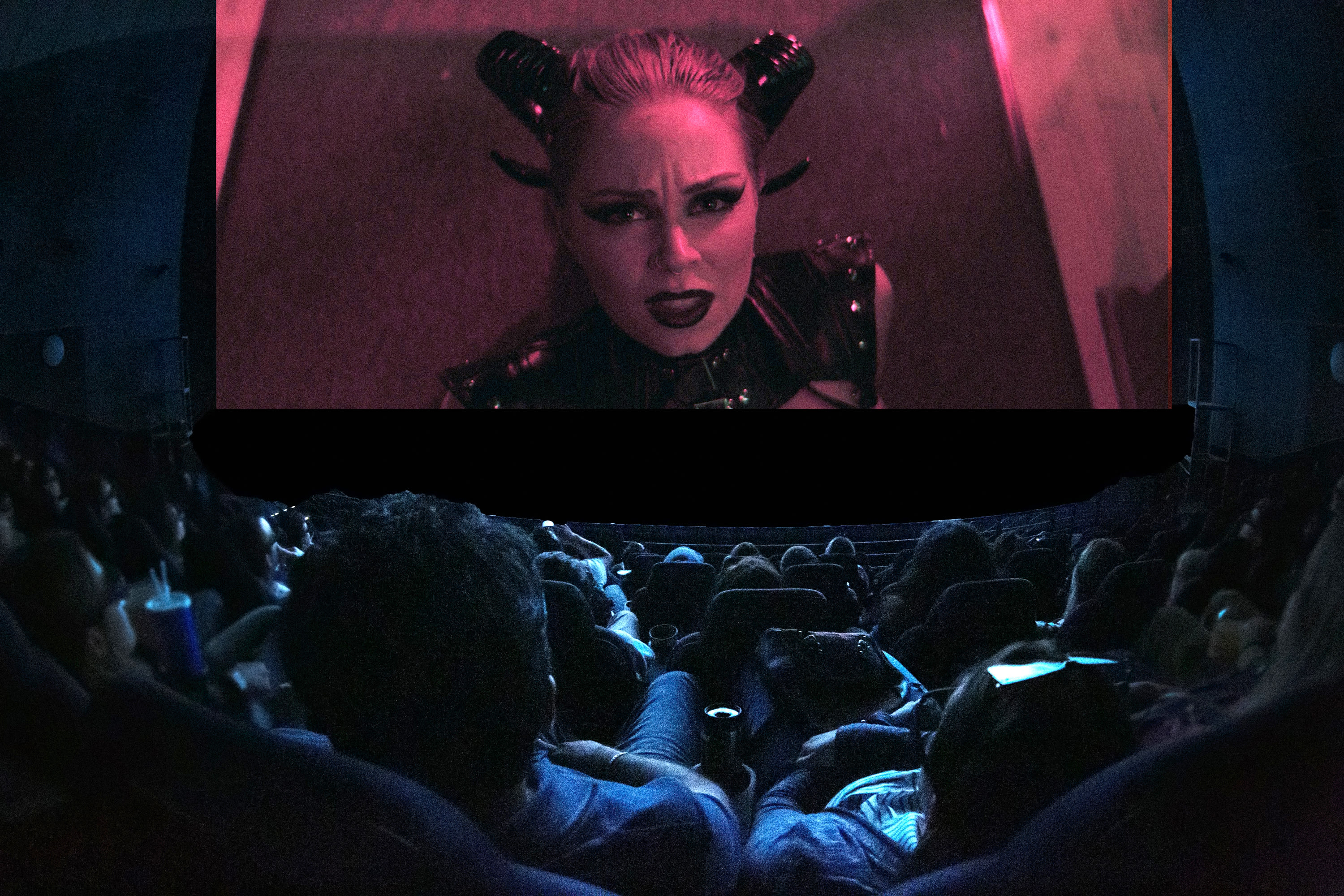Old Warrior, New Fight

KEEPING QUIET AND STANDING STILL are not Phil Donahue’s better-known qualities. Yet he silently poses for a picture in front of a black granite boulder in the Garden of Remembrance on a very crisp Seattle day. The garden, on the Second Avenue side of Benaroya Hall, was dedicated in 1998 to honor Washingtonians who’ve died in wars since 1941. It’s a fitting locale—the sacrifices of veterans drive Body of War, the stirring documentary Donahue recently directed and produced with the filmmaker Ellen Spiro. The movie dovetails the Senate debate that gave the President power to invade Iraq with the wrenching rehabilitation of Tomas Young, a soldier who spent less than a week overseas before a gunshot paralyzed him from the chest down.
Young’s tragedy ignites Donahue’s famed volubility once he’s back in from the cold. At age 72, he still exhibits the measured but restless insistence—pushing, challenging, suddenly exploding—that he did between 1967 and 1996, running all over the set as host of a daytime TV talk show that Oprah has never quite matched. About four years ago he got a fateful call from his longtime friend Ralph Nader, whose much-assailed presidential campaign he supported in 2000. Nader asked to meet. “I thought, you know, if anyone needed a hug…” Donahue says drily. It was during their conversation that Nader told him about the young man at Walter Reed hospital.
"They allow themselves to believe, for a moment, that they are touching the loved one that they will never…touch…again."
That initial introduction to Young rattled Donahue. “Every time I look at Tomas I think of the President saying, ‘Bring ’em on!’” he roars, grabbing at the air, then lowering his voice to an aggravated hush. “The biggest surprise is to have this front-row seat to a young man who just had his life turned upside down. And this injury turns the lives of his entire family upside down.” He shakes his head. “_Don’t sanitize the war_,” he emphasizes. “Show the pain. If you’re going to send a nation to war you have a responsibility, in my opinion, to show them what families have really committed.”
To that end, the heart of Body of War lies in a scene in which grieving widows and mothers reach out to Young at an antiwar protest. “That’s the toughest scene in the film for me,” Donahue says. “Tomas becomes a surrogate for their loved one. They’re touching him and they allow themselves to believe, for a moment, that they are touching the loved one that they will _never_…touch…again.”
Such compassion doesn’t mean Donahue has lost his sense of humor. Asked why he didn’t support Nader’s 2004 run for the top office, he utters two words: “Marlo Thomas.” His wife of nearly 30 years was “horrified” by his friend’s effect on the 2000 election. “To save my marriage,” Donahue explains, “I got off the Nader bus.”




